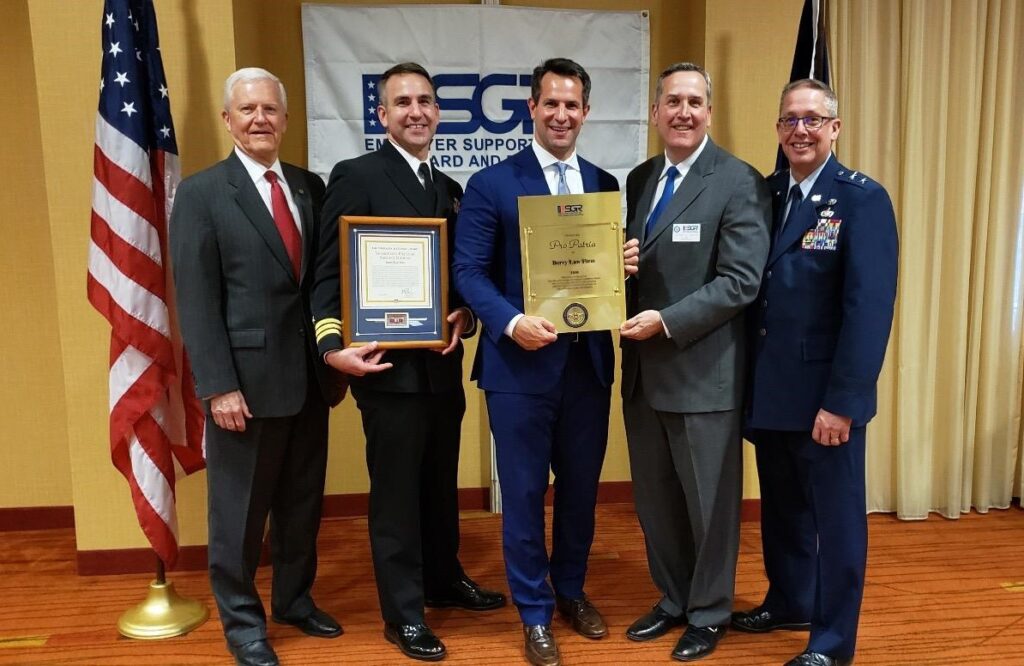Since August 1990, thousands of US military members have served in the Persian Gulf, also known as the Southwest Asia theater of military operations. As these Gulf War Veterans have returned home, they are experiencing a greater-than-normal rate of medical conditions and symptoms that are not easily explained by prior medical terms.
Since so many Gulf War Veterans are reporting similar issues, the medical community and the Department of Veterans Affairs (VA) now refer to these conditions as Gulf War Syndrome. Veterans who served in specific areas during military activities may be eligible to receive Gulf War illness VA benefits after being exposed to numerous substances and circumstances during their service.
Potential VA benefits may include:
If the VA benefit claims process becomes overwhelming, rest assured you can turn to experienced and compassionate VA disability lawyers to guide you and protect your legal rights.
Gulf War Veterans have reported many medically unexplained illnesses and different conditions after serving overseas. Some of these issues were apparent soon after discharge, but others have developed over time. The most commonly reported Gulf War Syndrome symptoms include:
Other possible Gulf War illness symptoms include:

A combination of these symptoms may be referred to as a medically unexplained chronic multisymptom illness (MUCMI) or simply as an undiagnosed illness that falls under the general category of Gulf War Syndrome conditions.
Many Gulf War Veterans were also exposed to several infectious diseases while they were stationed in the Persian Gulf areas. The VA’s Gulf War regulations recognize the medically unexplained illnesses listed above along with certain diseases that were endemic to Southwest Asia, including:
If you are experiencing any of these Gulf War illness symptoms due to your military service, you may qualify for Gulf War illness VA benefits. First, let’s review the specific service areas that qualify as Gulf War locations.
According to the VA website, Veterans who served in certain locations during specific timeframes may apply for Gulf War illness benefits. Specifically, to qualify for VA benefits, a Veteran must have served in at least one of the following countries or locations:
Veterans who served in the following military operations also presumptively meet the necessary criteria to qualify for VA benefits:
The Veteran’s military service must have occurred after August 2, 1990, and service members who served after September 2001 are eligible for benefits under the VA’s Gulf War Presumption. The VA has extended eligibility for Persian Gulf War Veterans until December 31, 2026.
Some unexplained symptoms that last at least six months are now presumed to be presumptively related to Veteran’s military service in the Gulf War. The presumptive conditions listed below must have begun during active duty in one of the areas listed in the last section or appear before December 31, 2026. The VA must assign a disability rating of at least 10% to qualify for benefits.
The Gulf War presumptive conditions are:
If you are diagnosed with any of these Gulf War presumptive conditions, you will not need to provide evidence to support a connection between your Gulf War military service and your condition to qualify for VA benefits.
Many Gulf War Veterans were subject to several hazardous substances and circumstances during their time in the Persian Gulf area. Because they served in desert locations, these service members had to deal with high levels of sand, dust, and other particulate matter on a daily basis. In addition to the harsh breathing conditions in these areas, Gulf Veterans were often exposed to:
Although the VA does not recognize “Gulf War Illness” as a medical diagnosis that qualifies for benefits, if you are experiencing some of the symptoms above after serving in the listed areas after August 1990, you can apply for VA benefits.
If you have medical proof that you suffer from any of the Gulf War presumptive conditions, the VA will assume your condition is related to your service, and the first element of your claim will be satisfied. Next, you will receive a Gulf War illness VA rating to determine the amount of benefits you will receive.
The first step is to apply for VA benefits through the Department of Veterans Affairs. You can apply online, in person, or by mail. The VA will likely send you to a VA-approved doctor for a Compensation & Pension (C&P) exam. Once the doctor files their report, the VA will review the medical evidence and any additional information you provide to determine:
The benefits you receive depend on your disability rating. If you are denied benefits or if you receive a low disability rating, you have the right to appeal the VA’s decision. At this stage, you should work with an experienced VA disability benefits law firm to guide you through the complicated and extremely important appeal process.
The United States Government Accountability Office (GAO) reviewed how the VA handles Gulf War disability claims. In 2017, the GAO released a report that disclosed that the VA was denying more than 80 percent of Gulf War disability claims. The GAO also found that Gulf War Veterans had to wait longer for a VA decision, and overall, the VA staff really didn’t understand the factors involved in Gulf War illnesses.

It turns out the approval rate for Veterans’ claims related to Gulf War illnesses is three times lower than other medical conditions, even for the Gulf War presumptive conditions. Veterans are facing denials of their disability claims because the VA staff doesn’t understand how Gulf War Syndrome symptoms qualify for VA benefits.
With only a 33 percent approval likelihood, most Gulf War Veterans will likely be denied benefits altogether, or they will receive a disability rating far below what they deserve. This is when an experienced VA benefits lawyer can substantially impact a Veteran’s life.
As you can tell by now, filing a successful Gulf War illness VA claim is a complicated and detailed process. The VA does not have a clear process in place to handle these claims and often denies benefits to Veterans facing these medical conditions. Because the process is extremely subjective, a Veteran without VA claims experience can be lost in the system, only to lose important benefits, even with a presumptive condition.
The team of VA disability claims lawyers at Berry Law have dedicated their careers to helping Veterans receive the benefits they deserve. We know how to challenge a claim denial or fight for an increased disability rating to protect Veterans’ rights. Our tenacious team will listen to your circumstances and help you prepare the best legal argument to help you increase your benefits or reverse your claim denial.
While you focus on your health, medical treatments, and those you love, let us focus on protecting your legal rights.
The U.S. Veterans who served in the Persian Gulf War were exposed to numerous chemicals, dangers, and situations that have left them with many life-altering medical concerns. These Gulf War illnesses are sometimes difficult to diagnose, but they create very real issues for the Veterans who face them every day.
The VA has created a category of benefits geared towards Gulf War Veterans and even acknowledges certain Gulf War presumptive conditions. However, many deserving Veterans have been denied the VA benefits that will help them deal with these illnesses. At Berry Law, we can’t stand by and let this happen.
Berry Law was founded by Vietnam War Veteran John S. Berry in 1965. Our team of veterans disability lawyers is made up of Veterans fighting for Veterans, and we have clients in all 50 states. As America’s Veterans Law Firm, we bring our military insight and experience to every Veteran we support.
If your Gulf War illness VA benefits claim was denied or undervalued, reach out today to learn how Berry Law could help you move forward. Call (888) 682-0751 or complete our online contact form for more information.
Our monthly newsletter features about important and up-to-date veterans' law news, keeping you informed about the changes that matter.